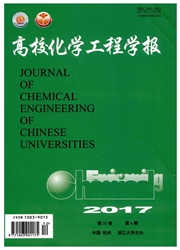

 中文摘要:
中文摘要:
在自主研发无蛋白培养基的基础上,考察了氨基酸、维生素和葡萄糖对CHO细胞生长、代谢与抗体合成的影响。结果表明,对培养过程中消耗较多的氨基酸进行补充,虽然不能促进细胞生长,但有利于培养后期细胞活性维持与抗体合成;B族维生素的添加能促进细胞生长并延长培养时间;作为重要的碳源和能源,葡萄糖浓度较高时会抑制细胞生长,而浓度较低时不能有效支持细胞生长与抗体合成,维持其在适当浓度有利于细胞生长并能延长培养时间,从而有利于提高抗体产量。通过合理调整各营养物的浓度配比形成了优化的无蛋白培养基,CHO细胞在该培养基中的最高密度达到52.6×105cells mL 1,抗体产量达到274 mg L 1,与初始培养基相比分别提高了33%和63%。总之,在细胞培养过程中应维持充足且平衡的营养物成分,以有效供应细胞生长与抗体合成的需求。
 英文摘要:
英文摘要:
Based on a protein-free culture medium with independent intellectual property rights owned by our lab,the effects of amino acids,vitamins and glucose on cell growth,metabolism and antibody production were investigated.It was found that supplementation of those most consumed amino acids promotes cell viability and antibody production in the later stage,however the supplementation doesn't promote the cell growth and the cell concentration remains unchanged.The reasonable addition of some B vitamins improves cell growth and extends culture duration.As an important carbon and energy source,high concentration of glucose inhibits cell growth,while low concentration will be inefficient to support the cell growth and antibody production.It was demonstrated that by maintaining the glucose concentration in an optimal range,cell growth is improved and culture duration is prolonged,which are favorable for antibody production.By optimizing the fractions of nutrient components in the basal culture medium,an optimal protein-free culture medium for CHO cells was developed.The maximum viable cell concentration and antibody productivity in that medium are 52.6×105 cells.mL.1 and 274 mg.L.1,respectively,which represent an increase of 33% and 63% in comparison with those in basal culture medium.In brief,the nutrients in culture medium should be sufficient and balanced for cell growth and antibody production.
 同期刊论文项目
同期刊论文项目
 同项目期刊论文
同项目期刊论文
 Insight into the roles of hypoxanthine and thymidine on cultivating antibody-producing CHO cells: ce
Insight into the roles of hypoxanthine and thymidine on cultivating antibody-producing CHO cells: ce Understanding the mechanistic roles of 30Kc6 gene in apoptosis and specific productivity in antibody
Understanding the mechanistic roles of 30Kc6 gene in apoptosis and specific productivity in antibody Correlation of antibody production rate with glucose and lactate metabolism in Chinese hamster ovary
Correlation of antibody production rate with glucose and lactate metabolism in Chinese hamster ovary 期刊信息
期刊信息
